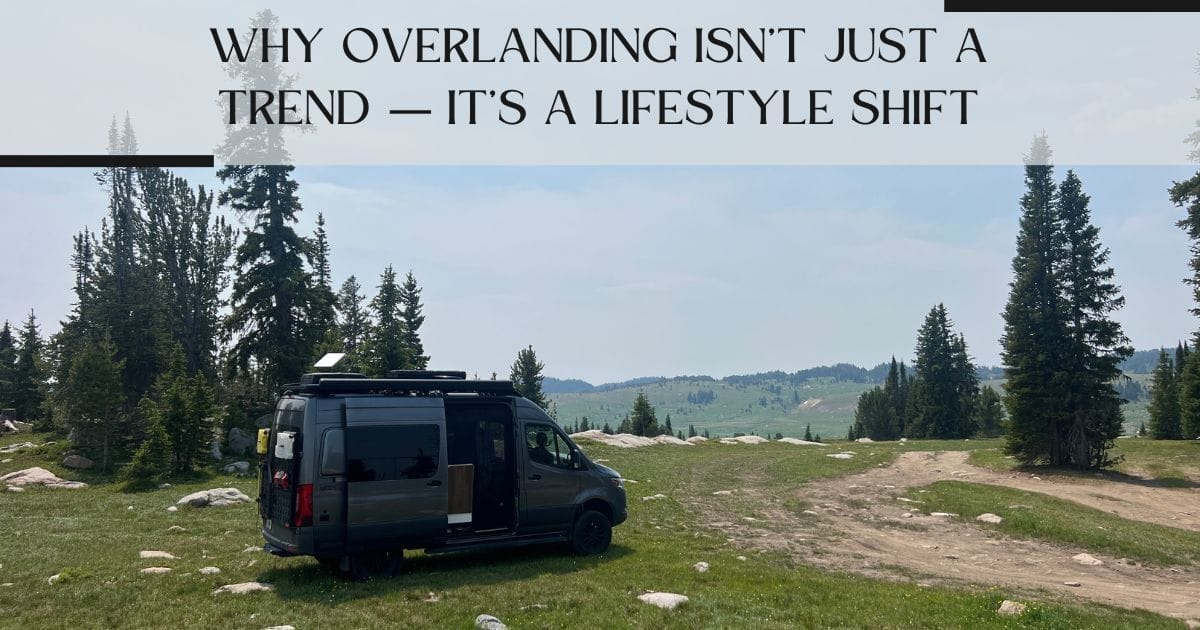The word “overlanding” may have popped into your Instagram feed over the past few years, nestled between shots of rugged 4x4 rigs, rooftop tents, and panoramic views of vast deserts or dense pine forests. To some, it seems like another fleeting social media craze — all lifted trucks, artisanal camp coffee, and drone shots from remote cliff edges. But look deeper, and you’ll see that something else is happening. Overlanding isn’t just a trend. It’s the outward expression of a deeper cultural shift — a reimagining of freedom, connection, and the way we experience the world.
Let’s break down why overlanding is more than the sum of its parts — and why this movement is here to stay.
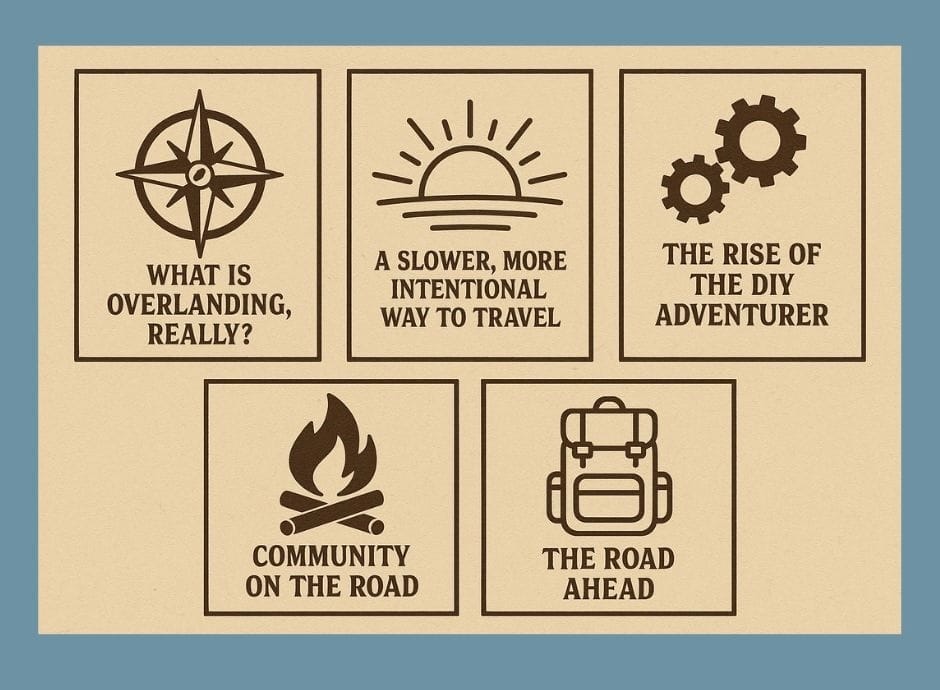
🧭 What Is Overlanding, Really?
At its core, overlanding is freedom - self-reliant travel to remote destinations, where the journey itself is the primary goal. It’s typically done by vehicle (sometimes motorcycles, but more often trucks, SUVs, or vans modified for off-road travel) and extended self-sufficiency. Unlike camping, it’s not just about the where you are but how you got there, and what you experienced along the way.
We love camping and road trips but overlanding is more than the sum of those. It is its own glorious entity that emphasizes autonomy, exploration, and a blend of adventure with practicality. It’s a mindset that moves away from the traditional, stationary enjoyment of nature. Overlanders do not simply go into the great outdoors, they continually labor to build a uniquely personal lifestyle that centers around exploration, intentional living, and sometimes even full-time nomadism.
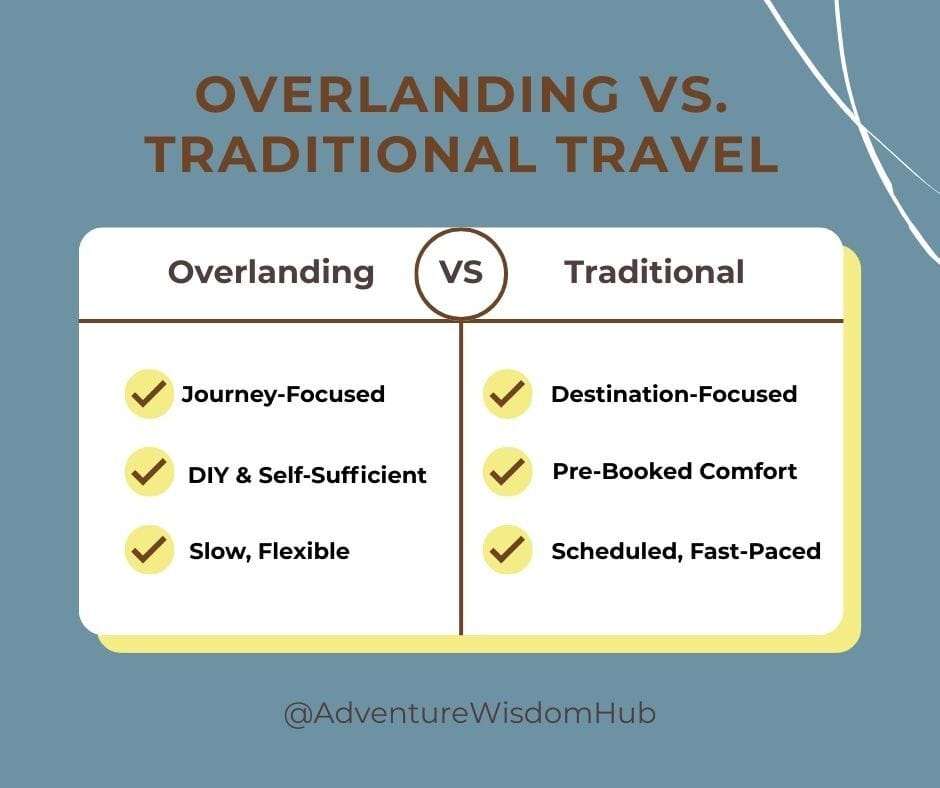
☀️ A Post-Pandemic Awakening
The COVID-19 pandemic turned life upside down in countless ways, but one lasting effect has been the re-evaluation of what, “normal,” looks like. As cities shut down and travel became restricted, many turned to the open road for a sense of freedom. Suddenly, that dusty old Jeep in the garage became a passport to sanity and a way to escape. As distance became something required, an awakening occurred for wide open spaces.
But what started as an escape evolved into something more meaningful. With remote work becoming more normalized, people began to ask themselves: Why not work from the road? Why not live more simply, more connected to nature, and less dependent on a fixed location?
Overlanding exploded in popularity during this time — but it wasn’t a passing trend. It was a preview of what life could look like beyond the confines of routine. Over the last few years, many have discovered a true love for something they had never imagined before the pandemic.
⚙️ The Rise of the DIY Adventurer
One of the hallmarks of overlanding culture is its do-it-yourself ethos. This isn't about buying your way into adventure — it's about building your adventure rig, researching trails, planning routes, and learning to navigate breakdowns, both mechanical and emotional.
There’s a kind of quiet pride in crafting your own setup, whether that means installing a solar system to power your fridge, fabricating a drawer system for storage, or converting an old van into a cozy off-grid cabin on wheels. It’s the kind of hands-on engagement that’s sorely lacking in a world of convenience. A skillset that somehow helps us feel closer to earlier generations who gave us the foundation upon which we have built.
This process builds confidence. It fosters resilience. And more importantly, it encourages a kind of creative problem-solving that echoes the self-sufficiency that is at the core of overlanding.
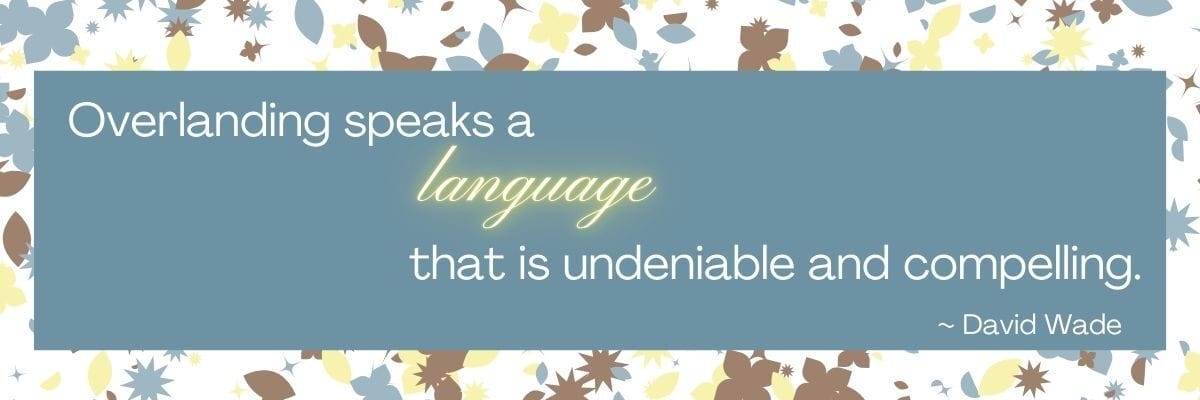
🌅 A Slower, More Intentional Way to Travel
Our traditional travel is often extremely fast paced. We create detailed plans that allow us to maximize the time we have at our destinations because we want to see and do as much as we can while we are there. But overlanding offers something else entirely: slowness.
When your home has wheels and your kitchen folds out of the back of your truck, you’re not rushing to check into a hotel or catch a train. You’re waking up with the sun, making breakfast beside a river, and deciding whether to stay another day because the stars were just too good to leave behind.
This slower pace allows for deeper engagement with the places you visit — and more importantly, the people you meet. Overlanders often talk about the kindness of strangers, impromptu roadside repairs with locals, and the unexpected conversations around shared campfires.
Sports broadcasts often slow down a replay so that the viewer can catch details that they missed in real time. Somehow overlanding has that same ability. Perhaps we were imbued with an internal chronometer that resonates with a slower pace, perhaps we just enjoy the opportunity to soak in additional details – whatever it is, overlanding speaks a language that is undeniable and compelling.
🏞️ Reconnecting with Nature — and Ourselves
Perhaps the most compelling reason why overlanding is more than a trend is that it taps into something we’ve lost: our connection with the land.
Overlanders find joy in the rhythms of the natural world — reading weather patterns, tracking the moon, and understanding terrain. There’s a humility that comes with being at the mercy of the elements, and a quiet joy in realizing you don’t need much to be happy: a warm meal, a dry shelter, and perhaps someone with whom you can share the fire and an adult beverage.
In a time where so much of life is digitized, curated, and artificially lit, overlanding offers a chance to slow down, unplug, and reawaken our senses. You start to notice the little things again: the sound of wind through aspens, the smell of sagebrush after a storm, the satisfying crunch of gravel under tire. Seemingly small details that combine to provide true depth, texture and enhanced color to our lives.
🔥 Community on the Road
Despite the image of the lone traveler forging their path through the wilderness, overlanding is surprisingly communal. Online forums, YouTube channels, meetups, and even dedicated camping and overlanding expos have brought together a global network of adventurers eager to share knowledge, inspiration, and a cold beer by the fire.
This community is largely built on shared values — sustainability, curiosity, humility, and a respect for the outdoors. It’s not just about owning the fanciest gear; it’s about swapping stories, helping each other out, and forging genuine connections, both online and off.
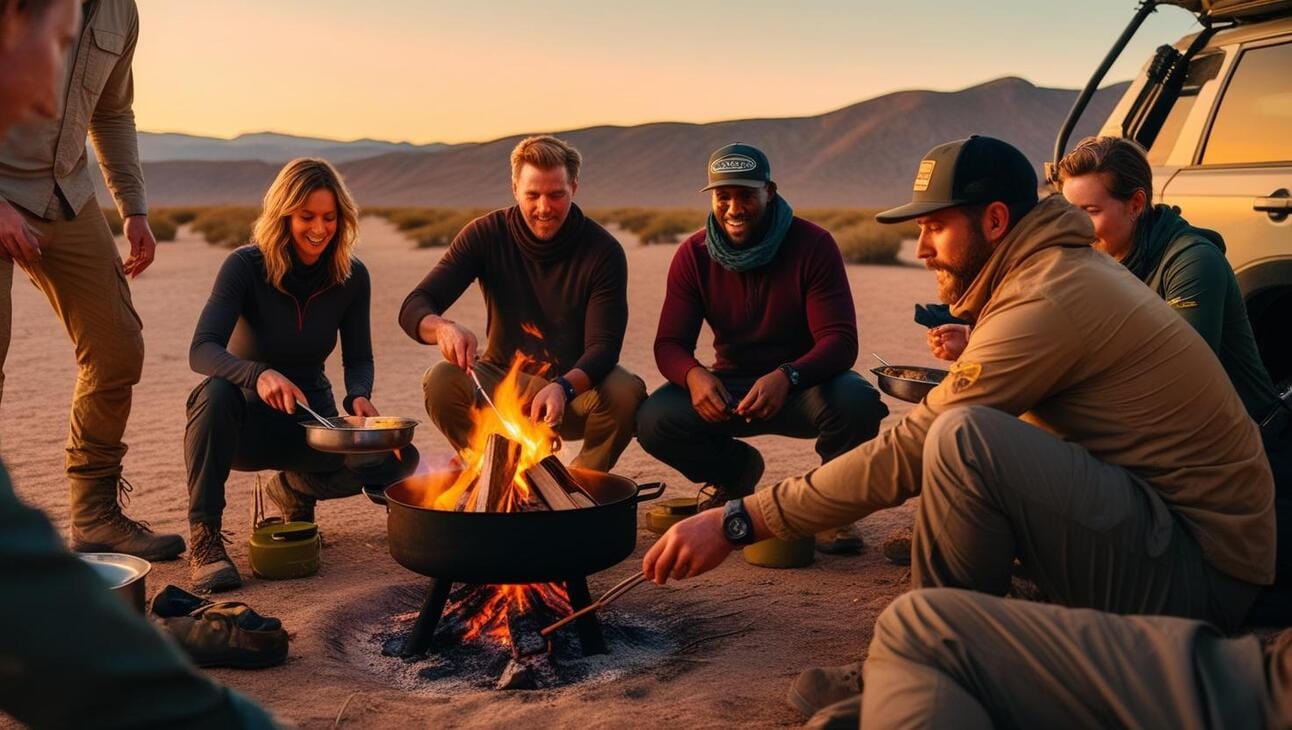
🏕️ A Shift in Priorities
Ultimately, the rise of overlanding reflects a larger shift in societal values. We’re seeing people move away from the pursuit of things, and toward the pursuit of experiences. The message is clear: people are hungry for meaning, for autonomy, and for something that feels real in a world that too often doesn’t. It’s a rebellion against virtual reality — and a reclamation of true, unfiltered wonder.
🎒 The Road Ahead
Overlanding will undoubtedly evolve. New technology will continue to shape the way people travel off-grid but at its heart, overlanding will remain grounded in timeless human instincts: the desire to explore, to build, to connect, and to live a life less ordinary.
So no, this isn’t just a trend. It’s not a hashtag to fade with time. Overlanding is a modern answer to ancient questions — of where we belong, how we connect, and what it truly means to be free.
And as more people trade the cubicle for the canyon, and the 9-to-5 for the trail less traveled, it’s clear: this is more than a weekend hobby.
It’s a lifestyle. And it’s just getting started.
About the author: David Wade and his wife, Tiffany are the founders of the Best Life Adventure Channel. They are authors, award winning photographers and videographers who travel the country living out of their rooftop tent. You can find them at camping and overlanding events across the country teaching classes as well as creating content for the event and vendors in attendance. Find them on the internet, YouTube, Facebook and Instagram @BestLifeAdventureChannel.

